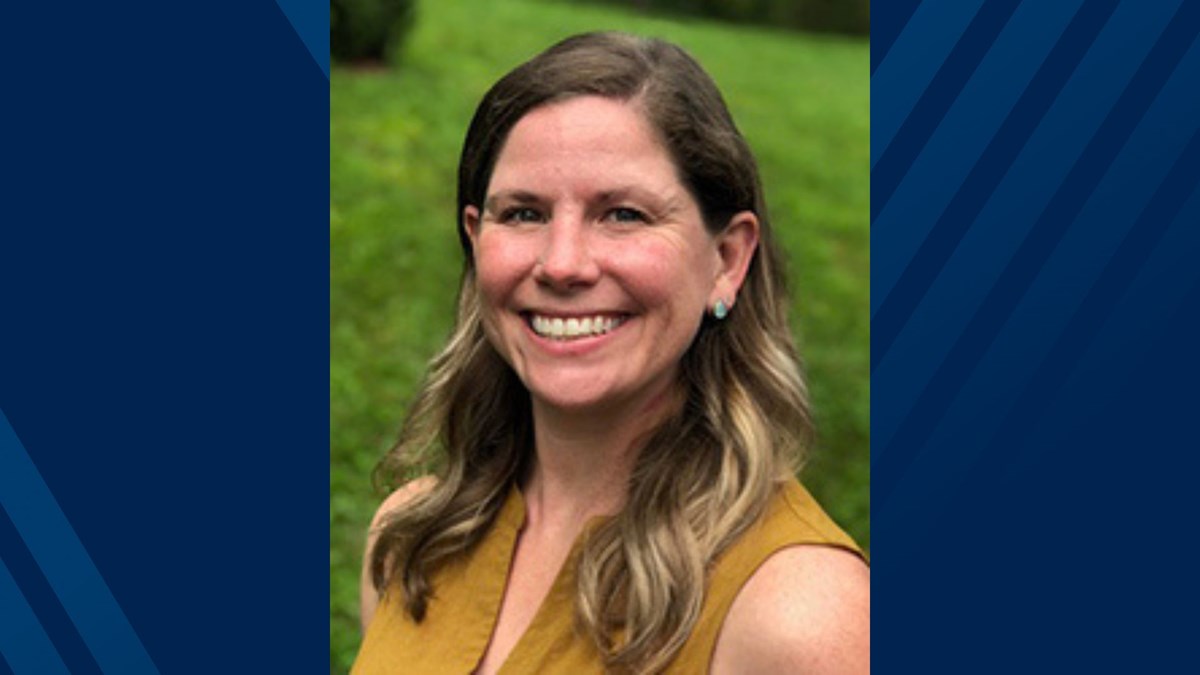Kelly Collins, Ph.D.

“Our department is very welcoming, and the students, staff and faculty have all been phenomenal. Everyone is excited about the work we’re doing, and we all work together to lift each other up. Our department is dedicated to helping not only students grow, but also our faculty.”
Tell me about yourself.
I am from Grafton, W.Va. I always enjoyed science but was unsure of what I wanted to do as a career. I majored in biology as an undergraduate and took a microbiology course during my sophomore year and fell in love with the subject. I took more molecular biology courses and found it fascinating how dependent our daily lives are on small molecules.
After graduating, I started a Ph.D. program at the University of Cincinnati in the Molecular Genetics, Biochemistry and Biology program.
What in your education experience and training stood out to you, and what advice would you share with students who are in that position now?
I really valued the close relationships I had with my professors during my undergraduate experience. I was also passionate about getting students excited about science and molecular biology and exposing them to that early on in their learning, so undergraduate teaching and education really appealed to me.
After earning my Ph.D., I joined the faculty at Lees McRae College in North Carolina. I taught a variety of courses there and really wanted students to understand the significance of molecular biology and why it is important.
Why did you choose to come work for WVU?
I had the opportunity to apply for a teaching faculty position in the Department of Microbiology, Immunology and Cell Biology. I exclusively teach in the undergraduate Immunology and Medical Microbiology program. It has been an amazing transition because I still get to interact and mentor with students which I love while having all the resources a large university has to offer.
Why did you choose Microbiology, Immunology and Cell Biology? Is there any significance for West Virginia?
I lived away from West Virginia for a long time, and I was always an ambassador for the state. Now that I’m back, I feel strongly about enhancing our outreach into rural communities and getting more students from rural Appalachia involved in biomedical fields.
How would you describe your day-to-day to a class of middle schoolers?
My strength is making connections to get more people excited about biomedical research and its impact on daily life. My job is to foster relationships with my students and faculty to provide tools needed to be successful and understand how small projects can have big impact.
What are your aspirations while at WVU?
I am working on a submission for a R25 grant to the National Institute of Allergy and Infectious Disease. One of my goals with that grant would be to enhance awareness about the work our Immunology and Medical Microbiology program is doing to better meet the healthcare needs of West Virginia and Appalachia. I want to foster collaborations to develop further curriculum, training and outreach opportunities for our students.
I want to continuously ensure our undergraduate programs are evolving to meet the needs of the current student demographic. It’s important to always evaluate our curriculum to ensure students have all the tools and resources to succeed in today’s landscape.
How would you describe the culture of your program?
Our department is very welcoming, and the students, staff and faculty have all been phenomenal. Everyone is excited about the work we’re doing, and we all work together to lift each other up. Our department is dedicated to helping not only students grow, but also our faculty.
Tell us something unique about you that others may not know.
My philosophy is to work hard and play hard. When I’m not working, I’m always on-the-go with my family, hiking, mountain biking and being outside.